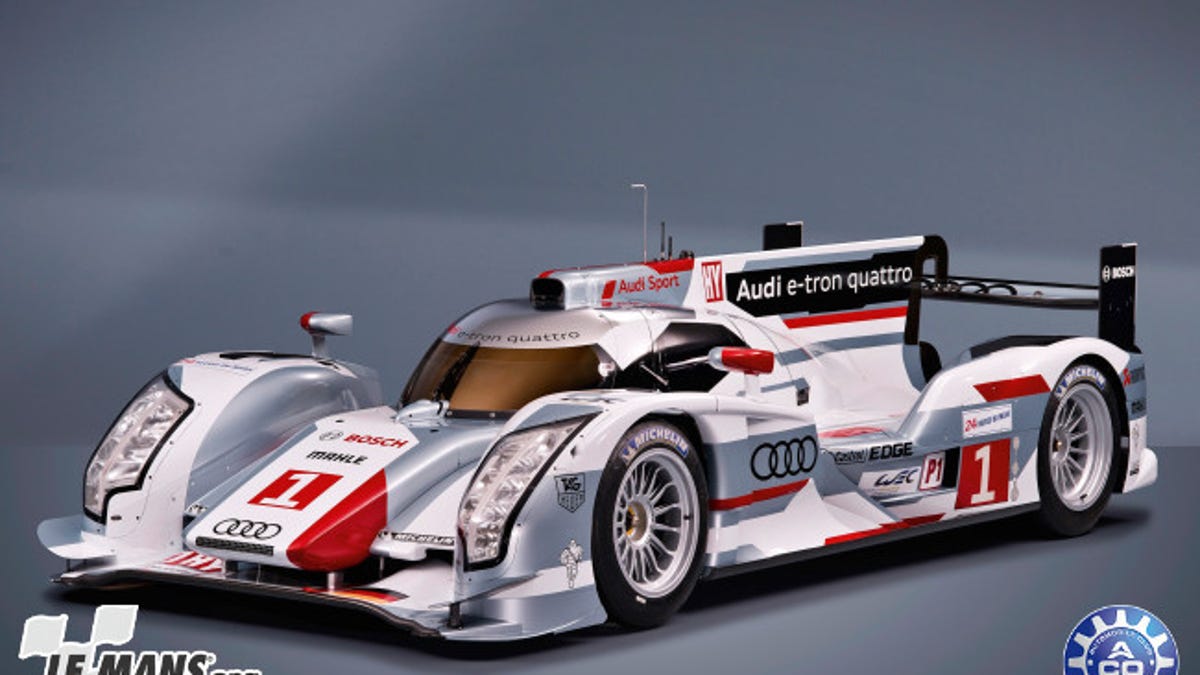Audi's hybrid takes Le Mans victory, twice
At the 24 hours of Le Mans endurance race this weekend, Audi proved the efficiency of its diesel-electric hybrid technology by taking the top two spots.

Ricky Bobby said "If you ain't first, you're last", but the driver of Audi's No. 2 R18 e-tron quattro probably did not feel particularly crushed to come in second, behind Audi's No. 1 R18 e-tron quattro, at this weekend's 24 hours of Le Mans endurance race. Both cars not only used Audi diesel engines, which have dominated at previous Le Mans runnings, but also an electric boost system.
The wins not only prove the efficiency of these drive systems, which helped the drivers to victory through the need for fewer fueling stops, but also their reliability. The winning cars' drive systems rely primarily on their diesel engines, but braking energy is stored in a flywheel, then converted to electricity to power another motor, giving the cars additional boost.
Related stories
The cars also used Audi's all-wheel-drive technology. The challenge for the engineers was to create a drive system that could combine the power from two sources and feed it to all wheels, in a manner that would enhance, rather than interfere, with the handling characteristics. Further, these systems had to hold up to 24 hours of full power driving.
The victories at Le Mans clearly justified the engineers' work.
The Audi cars were not the only hybrids in the race. Toyota entered two cars using gasoline-electric hybrid powertrains, but both experienced crashes, which kept them from the top spots. One of the Toyota cars was taken out five hours into the race in a spectacular crash. The other had a scrape with the Nissan Deltawing, damage from which caused a long delay and kept it from a top spot.
The Nissan Deltawing, while not a hybrid, showed off a radically different design from an LMP1 car, coming in at half the weight of its competitors. It used a front wheel track narrower than its rear wheel track. Its collision with the Toyota hybrid took it out of the race.
The Le Mans third place also went to an Audi car, a non-hybrid diesel of the kind that has been recently dominating the endurance race.

